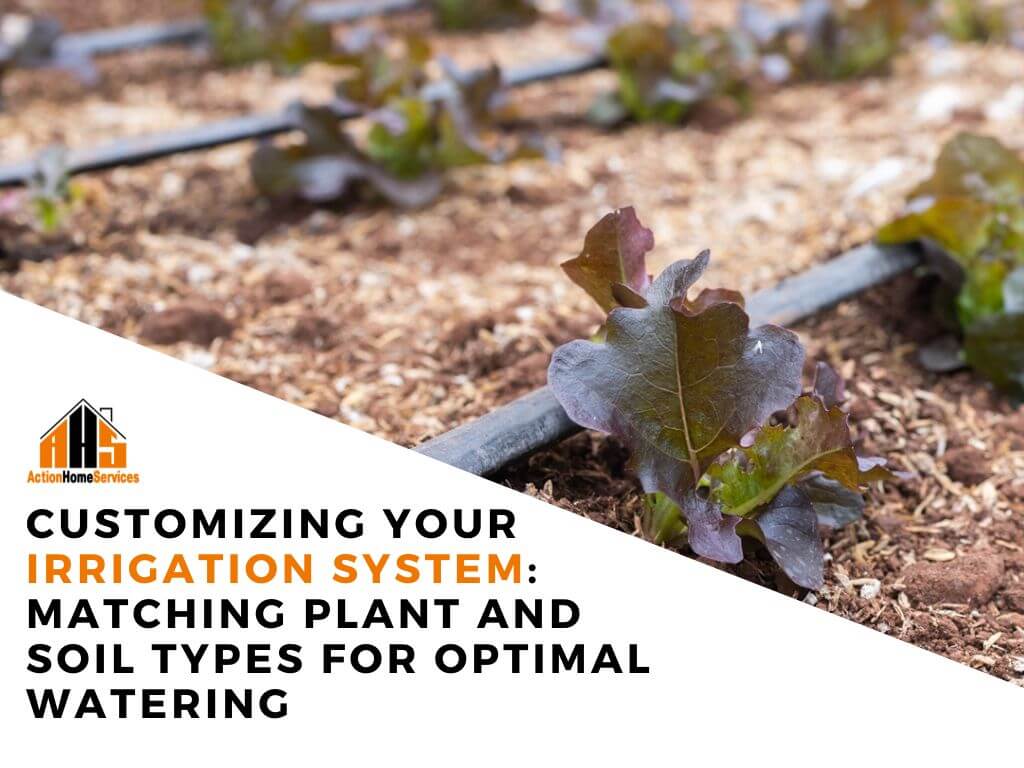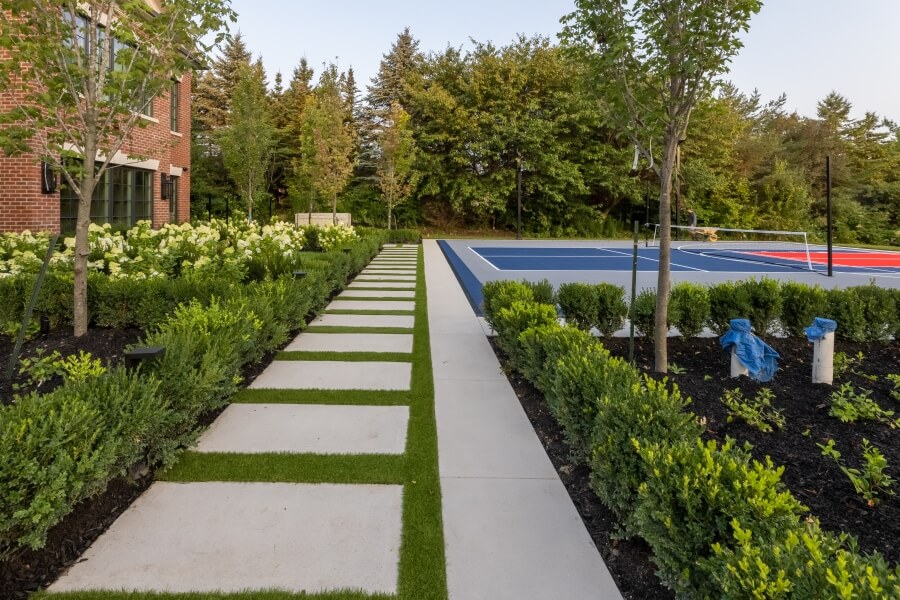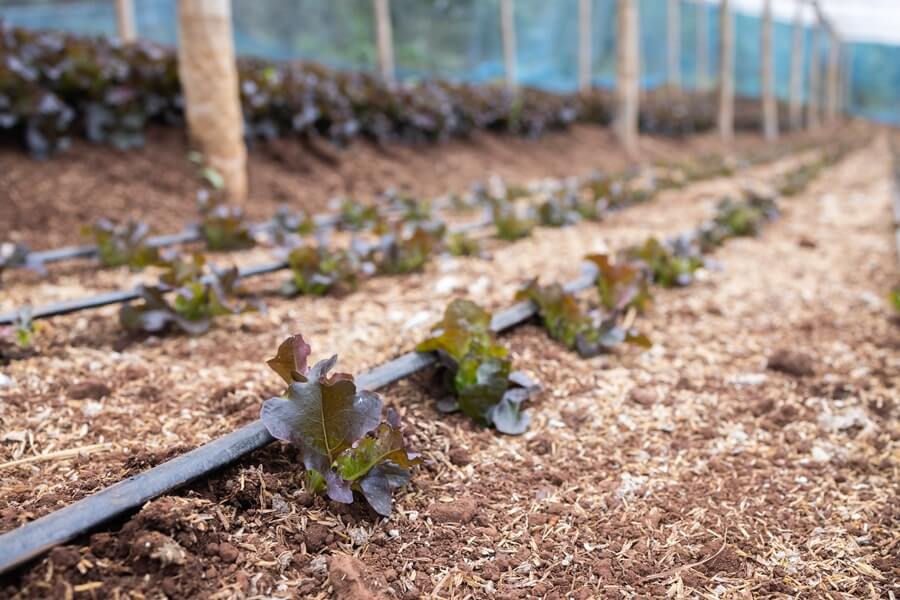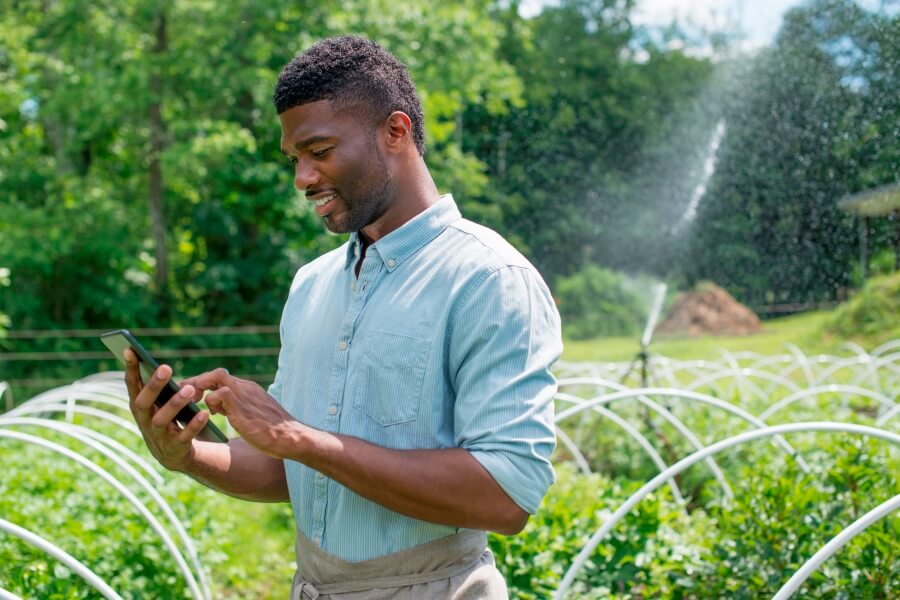
An irrigation system tailored to the specific needs of your plants and soil types can make a significant difference in the health and vitality of your landscape. While many standard irrigation systems offer general watering schedules, customizing your system based on plant and soil types allows for more efficient water use and better overall plant growth. Here's how you can customize your irrigation system to match your landscape's unique requirements:

Understanding Plant Water Needs
Different plants have varying water requirements based on factors such as species, size, and stage of growth. Some plants prefer moist soil, while others thrive in drier conditions. By categorizing your plants based on their water needs, you can create zones in your irrigation system and adjust watering schedules accordingly. For example, drought-tolerant plants may require less frequent watering compared to water-loving species.
Assessing Soil Types
Soil composition plays a crucial role in water retention and drainage. Sandy soils drain quickly and may require more frequent watering, while clay soils retain moisture for longer periods. Conducting a soil analysis can help you determine the soil type in different areas of your landscape and adjust irrigation settings accordingly. For example, you can schedule shorter watering cycles for sandy soil zones to prevent water runoff and ensure proper penetration, while clay soil zones may benefit from less frequent but deeper watering to avoid waterlogging.

Choosing the Right Irrigation Methods
Various irrigation methods, such as drip irrigation, sprinkler systems, and soaker hoses, offer different levels of water efficiency and precision. Drip irrigation, for instance, delivers water directly to the plant's root zone, minimizing water loss through evaporation and runoff. This method is ideal for water-sensitive plants and areas with sandy soil. On the other hand, sprinkler systems are suitable for covering larger areas but may result in water waste if not properly adjusted.
Drip system image sample below:

Utilizing Smart Technology
Advances in irrigation technology, such as smart controllers and moisture sensors, allow for even more precise and efficient water management. Smart controllers adjust watering schedules based on weather forecasts, soil moisture levels, and plant water needs, ensuring optimal irrigation while conserving water. Moisture sensors can be placed in the soil to monitor moisture levels and trigger irrigation only when necessary, preventing overwatering and water waste.

In conclusion, customizing your irrigation system based on plant and soil types is essential for maximizing water efficiency, promoting healthy plant growth, and conserving water resources. By understanding the water needs of your plants, assessing soil conditions, choosing appropriate irrigation methods, and utilizing smart technology, you can create a tailored irrigation system that supports a thriving and sustainable landscape.


